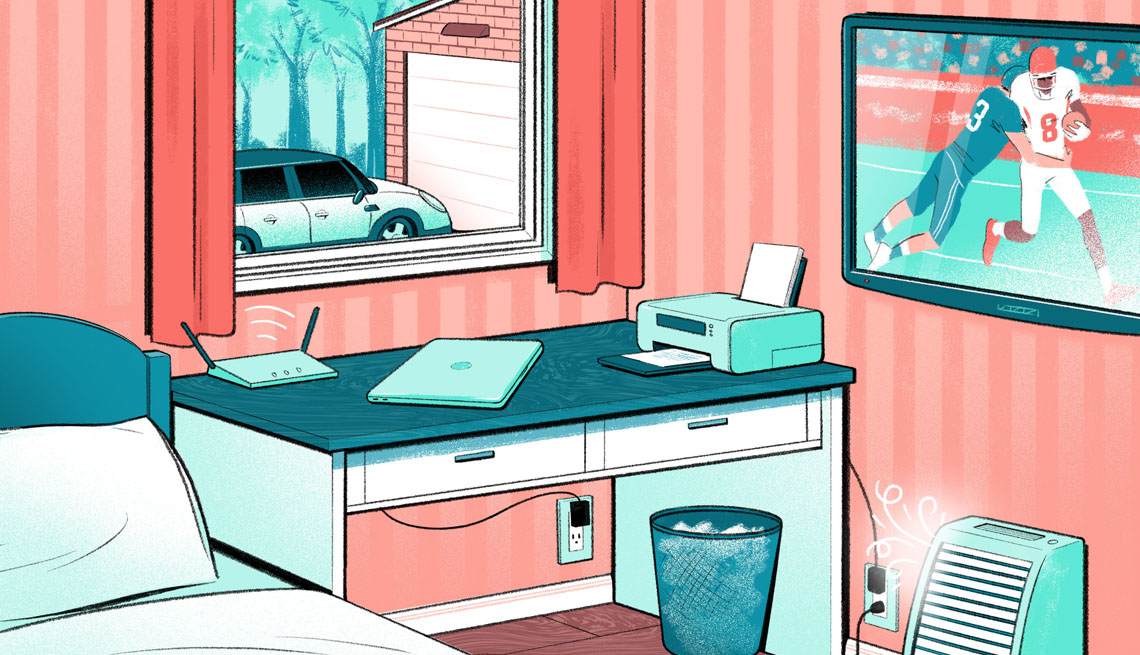Staying Fit
You can easily overpay by falling for the upsell. That’s when retailers make you think you’ll get a lot more if you pay a little extra. Numbers and sizes — say, a sheet’s thread count — can play a role. “A larger magnitude will seem like a larger magnitude of value,” says marketing expert Nick Kolenda. Check out these examples of how a costlier version of a purchase isn’t always worth it.
Sheets
Expensive sheets with thread counts in the high hundreds can be less soft and durable than sheets with a lower thread count, says textile expert Pat Slaven. “Generally, around 400 thread count is the sweet spot,” she says. If you’re on a budget, go for 100-percent-cotton sheets in a solid color, not with a design. “Inexpensive printed cotton sheets can feel stiffer,” Slaven says.


AARP Membership— $12 for your first year when you sign up for Automatic Renewal
Get instant access to members-only products and hundreds of discounts, a free second membership, and a subscription to AARP the Magazine.
Internet service
One service provider was recently charging $80 per month for download speeds of up to 1,200 megabits per second (Mbps) and $30 per month for up to 200 Mbps — a $600-per-year difference. But only hard-core gamers likely need those superfast speeds. Most everyone else will be fine with speeds of just 12 to 25 Mbps, reports the Federal Communications Commission.
Gasoline
You might conclude that the higher octane in premium gas — now about 60 cents or more per gallon than regular gas — might keep your car running more smoothly. But in American Automobile Association tests, cars designed to run on regular gas didn’t show any improvements in power, fuel economy or emissions. So consult your owner’s manual for your recommended grade of gas — usually regular (87 octane). Turbocharged engines are a common exception.
Humidifiers
To fight dry winter air, don’t splurge on the biggest model. Like window air conditioners, humidifiers work best if they’re the size suited to your room. A humidifier designed (and labeled) for a large room will likely generate too much moisture in a small one, says Misha Kollontai, a test-product leader at Consumer Reports. That can lead to dust mites, mold and other problems, says the Asthma and Allergy Foundation of America.
TVs
As cool and cutting edge as 8K sounds, a 4K TV will get you top quality for hundreds of dollars less. “Not everyone can see the difference in the extra picture detail — the main benefit of 8K — and there won’t be any 8K content to watch for a while,” says Jim Willcox, senior electronics editor at Consumer Reports.
Copy/printer paper
Basic 20-poundpaper — about $7 for 500 sheets — is fine most of the time. Don’t pay more for heavier, thicker stock unless it’s for a special purpose, like a presentation. If you’re printing color on both sides of a page, for example, try 24-pound paper. And check your manual for the weight range that your printer can handle.
Extras worth paying more for
Smartphones
Most casual users need just 64 gigabytes (GB) of memory, says Samsung. But if you take a lot of pictures or download many apps, you’ll likely want to upgrade to 128 GB, 256 GB or even more.
Backup generators
One that’s too small might keep your lights on in a power outage, but it won’t run your refrigerator. Search online for “choosing the right size generator” to find plenty of guidance.
House paint
The cheapest grades tend not to cover well or last very long, according to tests conducted by Consumer Reports.
Lisa Lee Freeman, a consumer and shopping expert, was founder and editor in chief of ShopSmart magazine from Consumer Reports.


MORE FROM AARP



































































